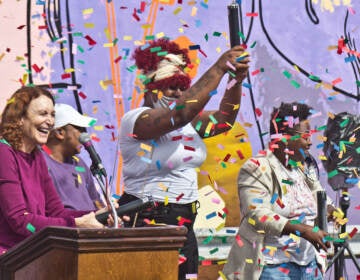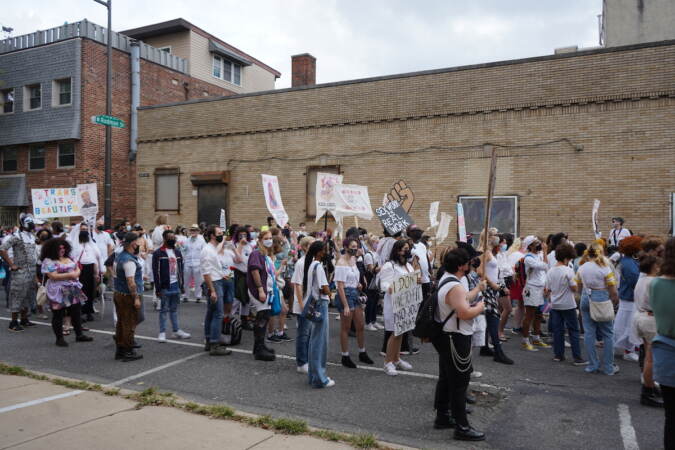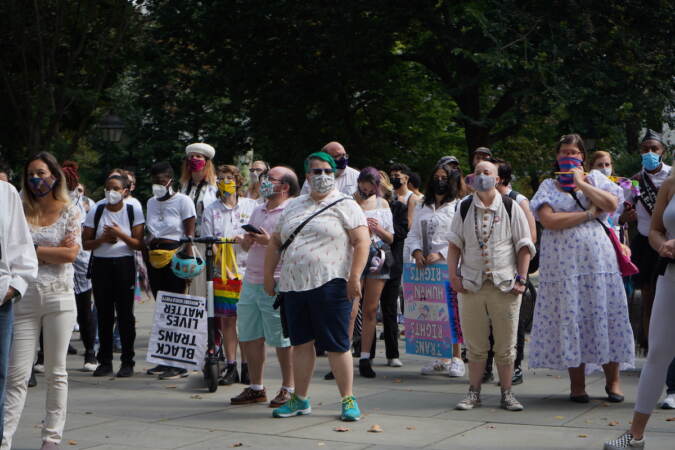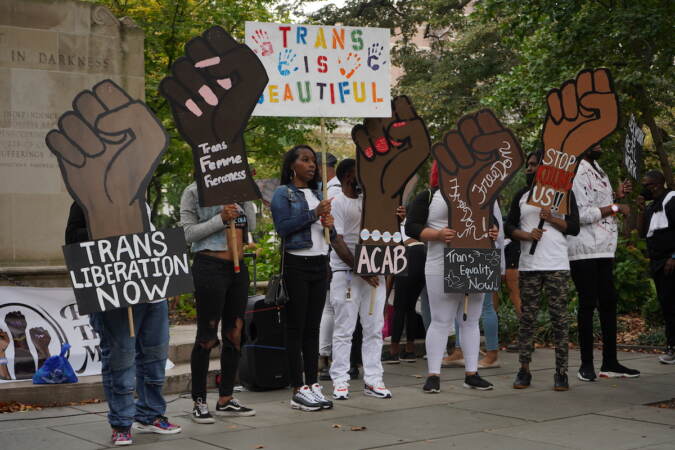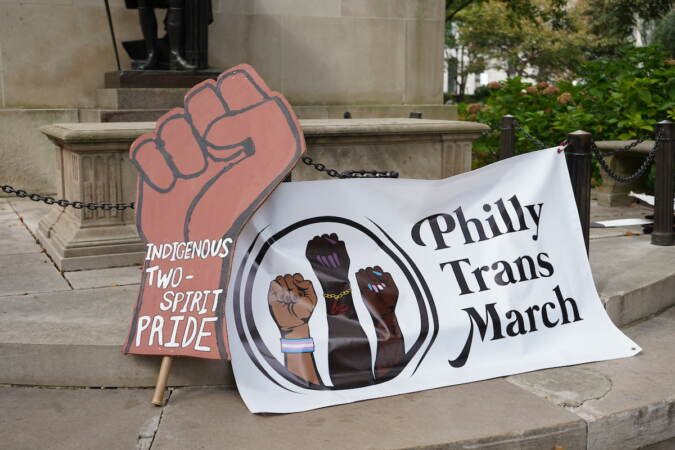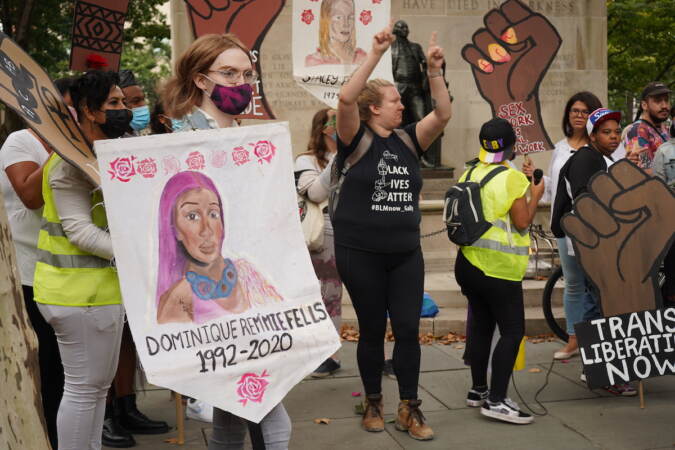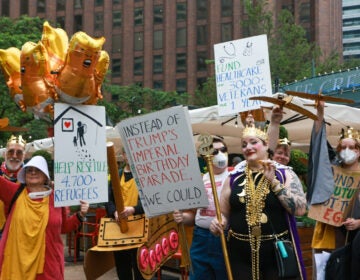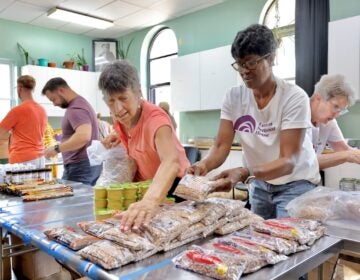Philly Trans March returns to demand justice, equity, and liberation
Violence against trans women of color and housing insecurity are just a few of the issues that organizers hoped to highlight at this year’s march.
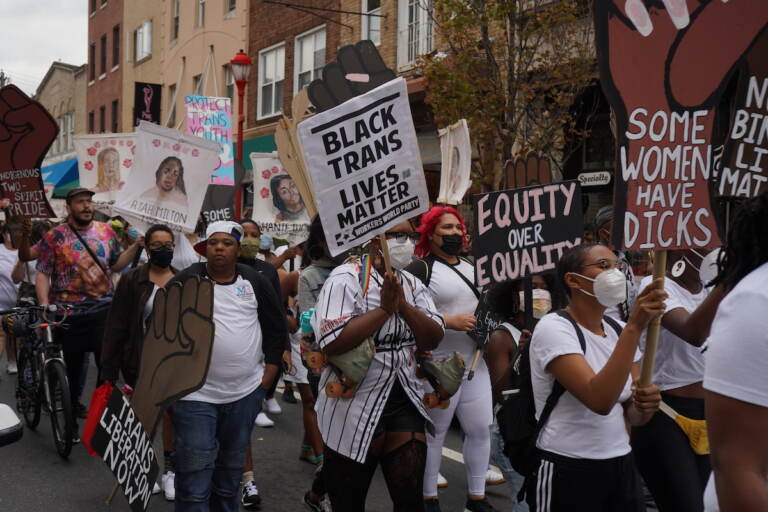
Protesters chant, "no justice, no peace," as they march through the streets of Philadelphia. (Kenny Cooper/WHYY)
More than 200 people packed into Washington Square Park on Saturday afternoon for this year’s Philly Trans March. For more than 10 years, the marchers have rallied in different locations in the city to demand justice, equity, and liberation for trans, nonbinary, and gender-nonconforming people.
“The reason why we marched is because black trans women are still being killed at really high disproportionate rates. We’re still without resources, especially with major budget cuts being done to HIV prevention and planning services, which also automatically affects the community, and other systemic issues that also affect us as well,” said Bri Golphin, one of the organizers.
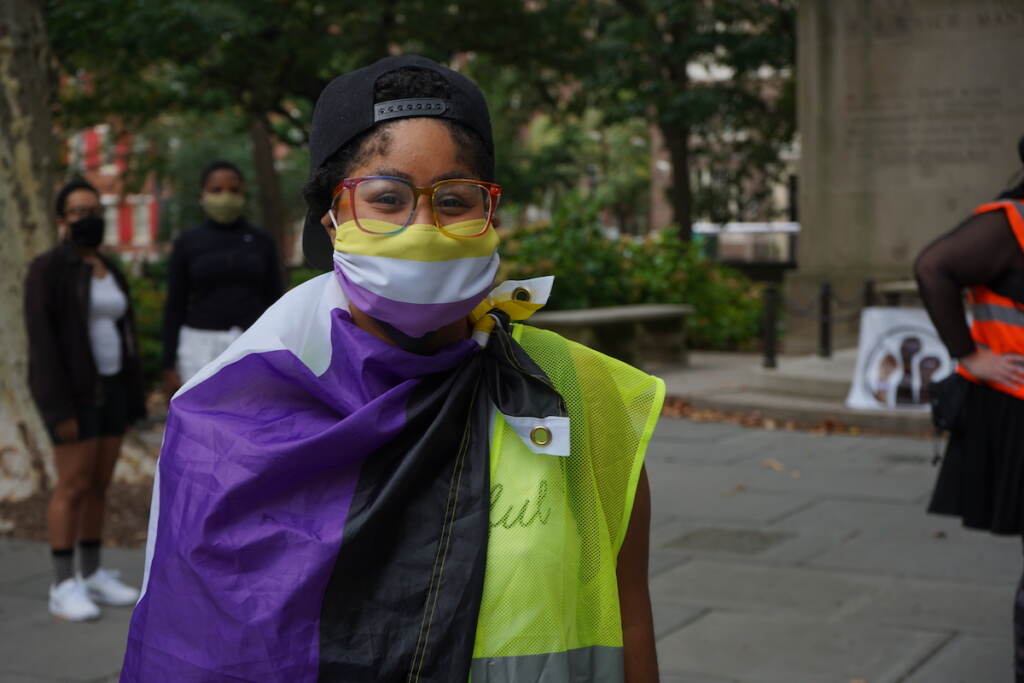
According to the Human Rights Campaign, trans people in the United States face considerable barriers, including a lack of legal protection, elevated poverty risk, higher occurrences of harassment and discrimination, and even violence — 1 in 10 trans people was physically assaulted in 2014.
Trans and gender-nonconforming people of color were most affected. The deadliest year on record was 2020, with 44 fatalities including Dominique “Rem’mie” Fells and Mia Green in Philadelphia. (The Human Rights Campaign began keeping track back in 2013).
In 2021, there have already been 37 deaths.
Violence against trans women of color as well as financial and housing insecurity are just a handful of the issues that organizers hoped to highlight at this year’s march.
Golphin believes that rallying on a Saturday in a public space is a vital action to take because it highlights who is there — but more importantly, who is not.
“There’s a lot of folks who claim to be allies of the community or organizations, specifically nonprofit organizations, or even corporations like the same people that supported the now-disbanded Philly Pride Presents or any other Pride corporation. They say they support the trans community. They say they are in solidarity with us. Well, if they really are about that, then they need to show up,” Golphin said.
Before and during the march, a number of trans, nonbinary, and gender-nonconforming speakers took to the microphone to share their lived experiences and demand change from both the community and elected officials they believe haven’t shown much concern.
Tazmere Stephens climbed up on the back of a pickup truck with the speakers to tell the crowd his life story and how he was “running” from himself as a child. Growing up, family members didn’t like the fact that he was trans, he said.
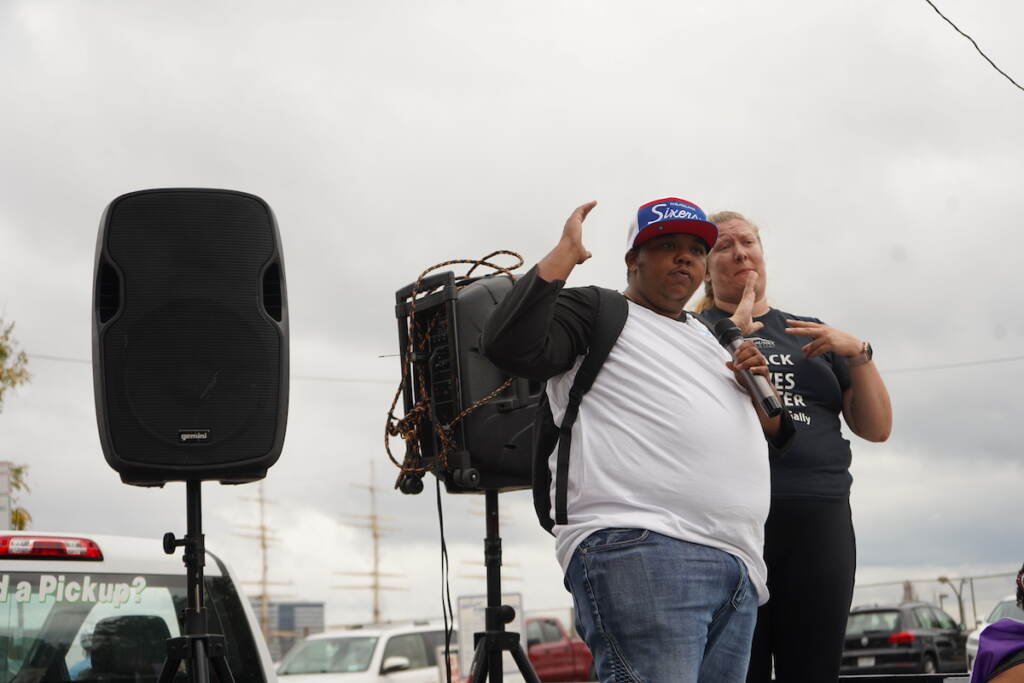
Eventually, Stephens became a father, however, he was faced with discrimination once again, at the same time he battled addiction.
“The scariest part was I didn’t know where to go to get help. Because where was I supposed to go? A mommy-and-me program — where I scare like every heterosexual mom around, because I’m going through hormonal therapy?” Stephens said.
Fatherhood programs brought an elevated level of danger. Stephens eventually found his way.
“Most of the trans brothers don’t speak up. We suffer in silence, because we want to be the big kids on the block. We’re not supposed to cry,” Stephens said, urging people to start treating others with respect.
On hand Saturday were staff members from the Morris Home, thought to be the only residential drug and alcohol treatment program in the country geared specifically to trans, nonbinary, and gender-nonconforming people.
As the staffers distributed Narcan and other harm reduction resources, some of the Morris Home clients carried signs at the front of the march to show their support.
Brianna Williams had a simple message: “We need more peace.”
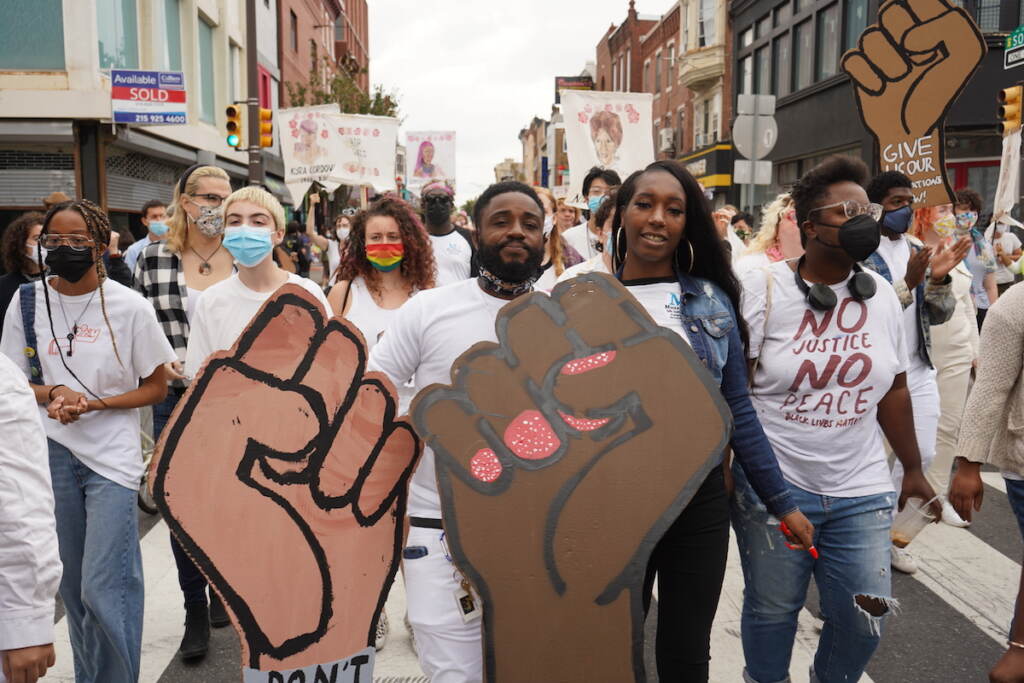
March organizers read aloud a list of demands at a stop on South Street. Among them are medical resources, more medical research on aging with HIV, defunding the police, economic justice, safe workplaces, the affirmation of trans youth, and an end to harassment and assault.
“We envision a world where we get to walk free from fear of the transphobic and anti-Black violence that has taken the lives of too many of our Black trans sisters and other trans siblings. Protect and defend Black trans women and all trans people at all costs,” Golphin said.
Valentina Rosario spoke to the crowd, calling attention to the importance of the moment. In an interview with WHYY News, Rosario said that the march was organized to increase visibility.
“This is for people to see that we are here. We’ve been pushed in the shadows for so long — all of our needs, our basic human rights have been pushed aside. Dogs have more rights than trans folks do. You can quote me on that one,” Rosario said.
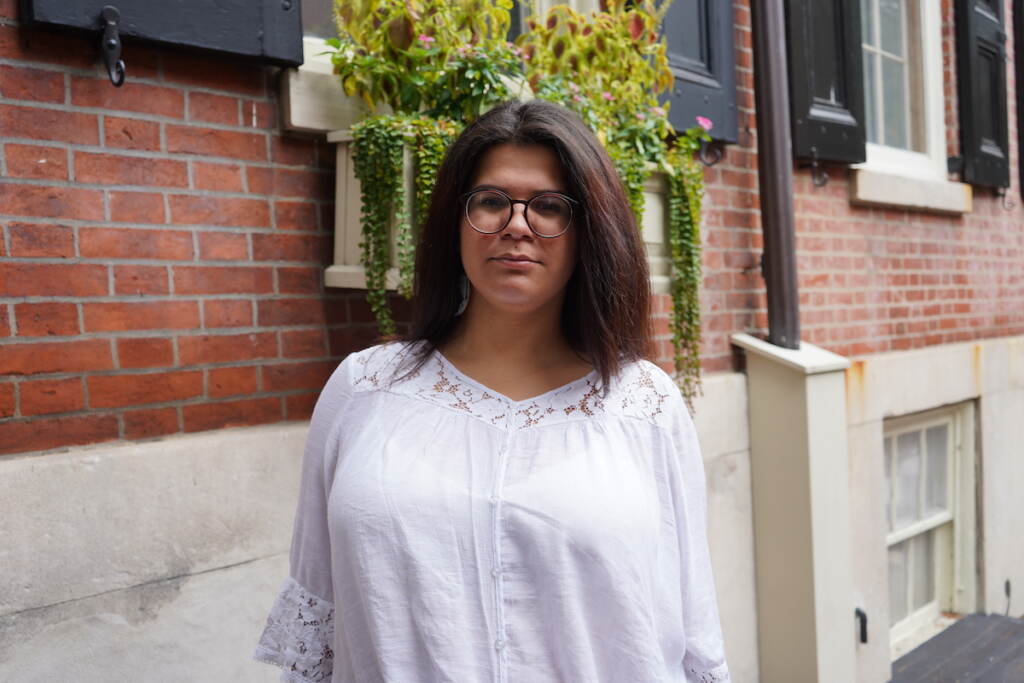
She said she believes the world is not “as open or as understanding as it makes it seem to be,” and that’s where equity comes into play.
“As equitable as a white cis man’s life is is as equitable as my life should be as well,” Rosario said.
It was a sentiment that was widely shared.
“Trans people are human beings. We deserve everything that everyone else has. We deserve to be here, to not live in fear, to have happiness, to have equity, all of those things, and we will get it. So, we would like for people to stand with us. But at the same time, if they don’t want to fight for us, we will continue to fight for ourselves,” march organizer Roberto Thornton said.
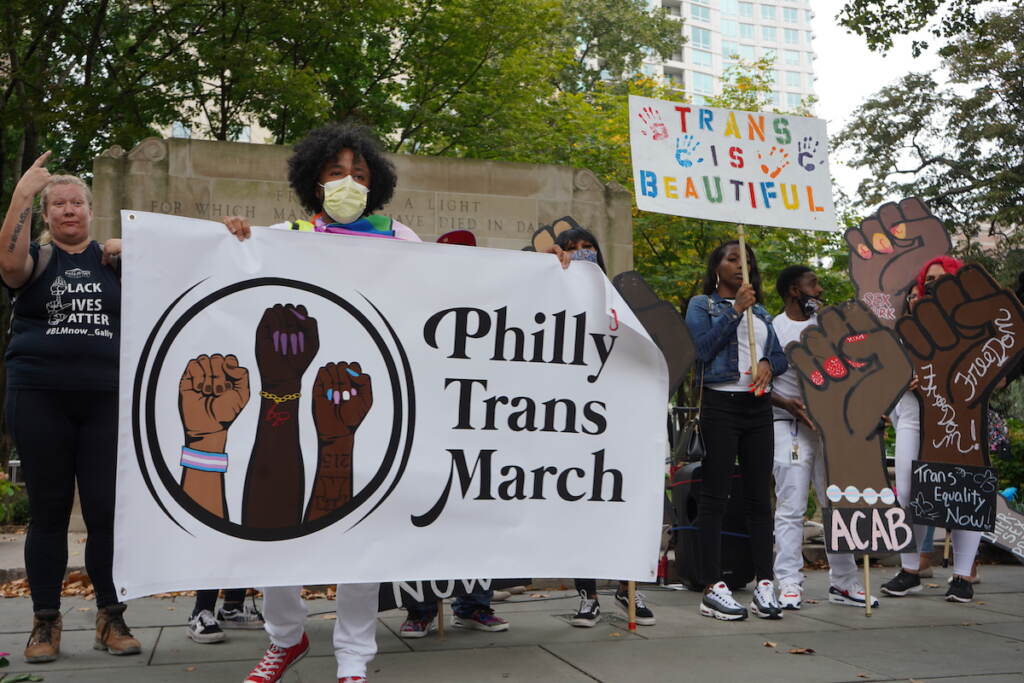
Chet Carter carried a large sign that was hard to miss, expressing his pride in being Afro-Indigenous and two-spirit.
Though he was happy to see a large turnout, Carter called into question the conditions that led to the need for Saturday’s march in the first place.
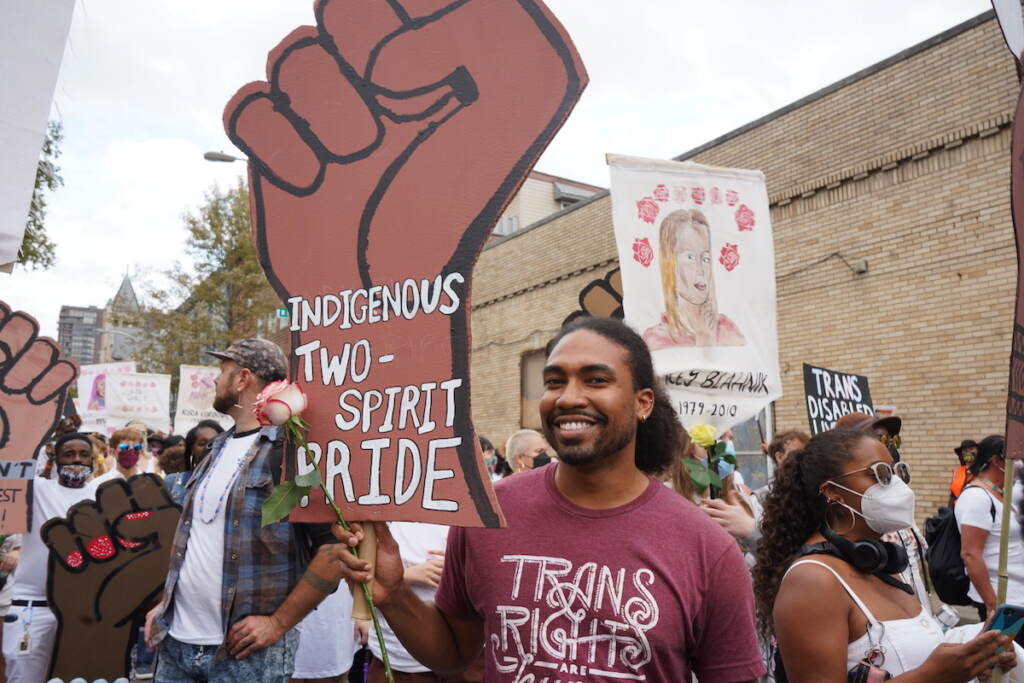
“It’s great that people come out like this in numbers. There’s a lot of us here, but this shouldn’t have to happen. We shouldn’t have to be in the streets trying to defend people’s honor, people’s right to live, and the right to be who they want to be and who they are,” Carter said.
Maya Goldspy-Allen noticed this as well.
“I think we shouldn’t focus on why is it important for peaceful demonstrations to happen. I think we should focus on what are they demonstrating, perhaps, first,” Goldspy-Allen said.
Savan DePaul said attending the march should have activated a lightbulb in people’s heads, a realization that it is all an “interconnected struggle” and why trans, non-binary, and gender-nonconforming people need liberation now.
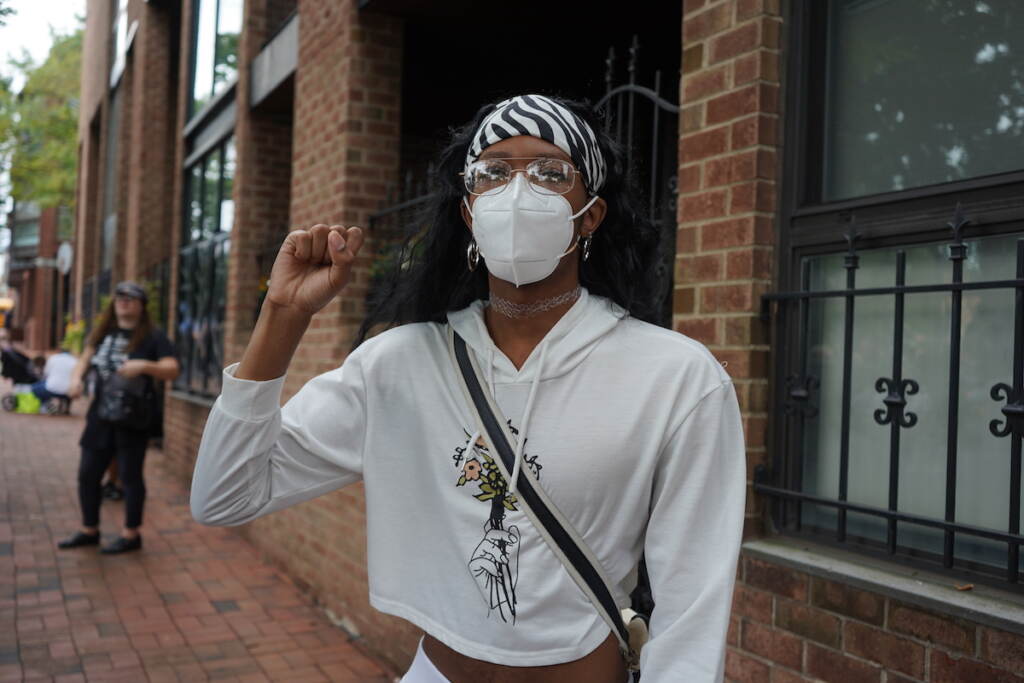
“The violence and discrimination that we as trans folks, that we experience, is connected to racism, that is connected to police violence, and it’s connected to housing struggles and the health care that we need. All the things are connected,” DePaul said.
WHYY is your source for fact-based, in-depth journalism and information. As a nonprofit organization, we rely on financial support from readers like you. Please give today.



